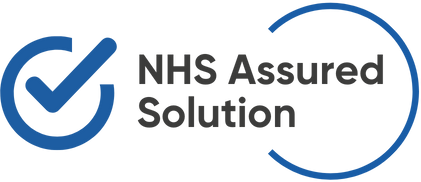Choosing an apprenticeship in software engineering
The latest figures for the 2021/22 academic year show that more than 555,000 people aged over 16 are participating in apprenticeships across the UK, with around 5% of those pursuing a career in information and communication technology.
And with nearly 10,000 vacancies for software developers in April 2021 alone, a software development apprenticeship can provide a smooth route to a dynamic and in-demand career path.
At Unique IQ, we’ve had great success hiring apprentice software developers. And we’re not alone – according to statistics from the Chartered Institute of Personnel and Development (CIPD) 80% of employers have maintained or improved future skills in the business by hiring apprentices.
Here, we’ll tackle 5 things you need to know about participating in a software apprenticeship.
1. What does a software apprenticeship involve?
A software apprentice typically spends about 80% of their time learning on the job, working within a team and gaining valuable experience with industry professionals and getting hands-on with genuine tasks and processes. The other 20% of their time is spent taking part in off-the-job training, which is a mix of lectures, online learning, shadowing, or working on a portfolio/journal.
Typically on-the-job tasks include:
- coding and testing software
- troubleshooting and bug fixing
- collaborating with teams across the company
- building and maintaining databases
2. What skills do employers look for in software development apprentices?
The good news is that software developers have a wide array of skill sets and specialisms. At Unique IQ, our apprentices are a varied bunch indeed! From PhD students to school leavers and to undergraduates in distinct and diverse fields – software development unites a huge array of skillsets and personal traits. So don’t let an excess, or lack of experience get in the way!
James Neal, Head of Technology at Unique IQ, elaborates: “Primarily, I’m looking for a candidate to be logical and methodical, with the ability to break down problems and get to the root cause of an issue.
“Being a willing learner is also a great skill – software patterns and practices are ever-evolving, and throughout their career, they will have to learn new technologies and business domains, along with other soft skills. Being able to learn and update these skills all the time will give them a massive head start.”
David Lynes, CEO and Founder of Unique IQ, adds: “For me, I’d say that the aptitude and appetite to learn can often surpass any previous technical fluency. Curiosity, determination and grit are hard to learn – so these skills are essential for apprentices to build confidence and achieve a career in development.”
3. How do you find a software development apprenticeship?
A great place to start your search for an apprenticeship is on employers’ websites. Businesses that champion apprenticeships will talk about them here, so look for a contact form or application page. Also, find out if they have criteria that you need to meet, but also assess whether it’s the right company for you.
There are also specialist providers of digital and tech apprenticeships that work to promote, provide, and develop apprenticeships in the tech sector. Companies like Estio help candidates to find and develop a successful career in IT. From new faces just starting out, to experienced talent taking it to the next level, Estio assists over 1,200 apprentices each year – like our Apprentice Software Developer, Kamran.
4. What can you do to find out if a software apprenticeship is right for you?
Feeling dissatisfied in your current career, or just starting out and not sure which path to go down? A career in software development may have crossed your mind, but you’re not sure it’s right for you. Here, our team share some of their favourite resources to help you dip your toes in the water:
- Pluralsight (focused courses led by influential and recognised industry course leaders)
- Stack Overflow (a public platform building the definitive collection of coding questions & answers)
- GitHub (a repository hosting service, where developers build, ship and maintain software)
- Skillshare (wide variety of topics for independent learning, taught by expert teachers)
- freeCodeCamp (thousands of free videos, articles and coding lessons – to get started)
And here’s some advice from James, Head of Technology at Unique IQ: “Just keep in mind, a large part of software development isn’t writing code but understanding what others have coded before you. So, use GitHub and other platforms to get involved in open-source projects or just read others’ code and try to understand what it’s doing.”
5. Can you take a software development apprenticeship at any stage of your career?
A big misconception about apprenticeships is that they are only suitable for school-leavers or younger candidates. But that certainly isn’t the case. Apprentices at Unique IQ come from a variety of different backgrounds and age groups.
Some of our apprentices have completed undergraduate degrees and PhDs, while others tried apprenticeships in other fields before switching to software development. And the statistics from the latest academic year show that apprentices aged 25 and over account for 50.3% of apprenticeship starts. “After graduating with a degree in Accounting and Finance, I realised that a career in that field wasn’t quite right for me. I began to explore other opportunities and figured that software development would be the perfect fit. So, for about 6 months I looked for opportunities online to expand my skill set, and once I was confident it was the right path – I decided to find an apprenticeship.”
Meet our apprentice graduates here.
The business perspective
Operations Director, Cheryl Guest, gives us the business perspective – the advantages of hiring apprentices and the benefits they have brought to our business.
Job opportunities
We list all of our job vacancies on our careers page.

